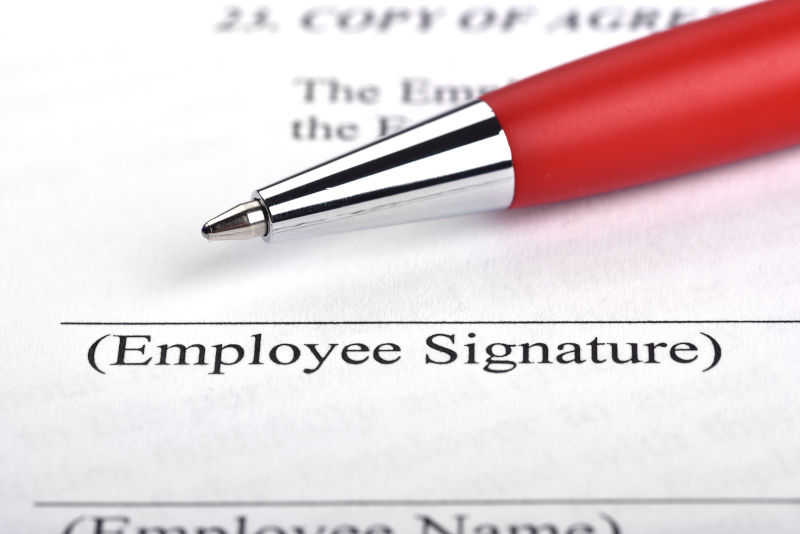At Truth Legal our employment team, led by Navya Shekhar, specialise in wrongful dismissal claims. We often represent our clients using No Win, No Fee agreements or using our client’s home insurance, at no cost to them. Alternatively, we offer affordable rates and fixed fees.
What is wrongful dismissal?
Wrongful dismissal simply is a dismissal in breach of an employment contract. The contract can be written or oral. Unlike in an unfair dismissal claim, fairness is not at issue. A wrongful dismissal claim may arise out of an actual dismissal or a constructive dismissal.
A wrongful dismissal gives rise to a common law claim for breach of contract. Unlike in an unfair dismissal claim, in a wrongful dismissal claim, the Employment Tribunal, or County Court, is concerned with whether a breach of contract occurred. What is key is not what the employer thought happened (as is the case for unfair dismissal); rather what actually happened.
Unlike in unfair dismissal claims, there is no need for any qualifying period (continuous period of employment) in order to bring a wrongful dismissal claim. When defending a wrongful dismissal claim, an employer may rely on facts that they found out after the dismissal in order to justify their position.
It is therefore possible for a dismissal to be wrongful but not unfair.
Wrongful dismissal: County Court or Employment Tribunal?
A claim for wrongful dismissal may be brought in the County or High Court or in the Employment Tribunals. Normally an employee who wants to bring a wrongful dismissal claim in an Employment Tribunal must commence ACAS Early Conciliation within three months less one day of the Effective Date of Termination. Whereas a Claimant who wants to bring a wrongful dismissal claim in a County or High Court has six years from the Effective Date of Termination to bring a claim for the purposes of the Limitation Act 1980.
Solicitors can offer different funding arrangements depending upon whether a claim is to be brought in a County or High Court or an Employment Tribunal. The funding package offered (such as a No Win, No Fee agreement) depends on which track of the County Court a claim will be allocated to. Generally, if a claim is simple and is under £10,000, then it will be allocated to the Small Claims Track in which, usually, the loser does not pay the winner’s full legal costs. If, however, a claim is complex and/or over £10,000 in value, then the winner of the case will usually get their reasonable legal costs back.
In contrast, it is uncommon for a losing party in an Employment Tribunal claim to pay the winner’s legal costs. Therefore an Employment Tribunal has some similarities with the Small Claims Track of the County Court. Careful attention must be paid as to which is the best court or tribunal to bring a wrongful dismissal claim.
How much compensation can I get for my wrongful dismissal claim?
Compensation for wrongful dismissal is capped at the notice period and/or the period of time it would have taken to complete a relevant contractual procedure – known as the “Gunton extension”. Compensation for wrongful dismissal should include the net value of salary (salary less tax) and any other contractual benefits to which the employee would have been due had they been allowed to work their notice, such as the value of a company car and private health insurance etc.
In an Employment Tribunal the maximum that a Tribunal can award for wrongful dismissal is capped at £25,000, but there is no such cap in the County or High Courts. If you have a high value wrongful dismissal claim, then it is of paramount importance that the claim is brought in the most appropriate court or tribunal.
Compensation for breach of a fixed-term contract
When a fixed-term contract, or a contract for a specified task, is terminated before the contract ends, or the task is complete, this will be a wrongful dismissal situation, unless the employer can show that there is a term of the contract which entitles them to dismiss in those particular circumstances. If the employer is in breach of contract by dismissing the employee, it will have to pay for the entirety of the rest of the term of the contract unless there is a provision within the contract for notice, or early termination, to be given.
When can an employer dismiss without notice?
- Where there is a Payment In Lieu of Notice (PILON) clause. A dismissal will not be wrongful where a contract explicitly allows that the employee is entitled to a payment in lieu of notice.
- If an employee commits gross misconduct.
An employer can dismiss an employee without notice when the employee has committed a very serious breach of the employment contract – gross misconduct. What constitutes gross misconduct is a question for the Employment Tribunal or Court.
When deciding whether something is sufficiently serious as to be gross misconduct, which would allow the summary dismissal of the employee, all the circumstances of the particular case will be relevant, including what the employer has stated in the staff manual or company handbook as amounting to gross misconduct. The main determining factor for deciding whether something is sufficiently serious to warrant summary dismissal for gross misconduct is whether trust and confidence is so undermined by the conduct of the employee.
We offer a 2 hour consultation for £280 including VAT. If you have a viable wrongful dismissal claim we will advise you on the available funding options for you, including No Win, No Fee agreements, use of your Legal Expenses Insurance, fixed fees or affordable hourly rates.
Click here to book a wrongful dismissal consultation today.
Employment Tribunal Costs
For a straightforward unfair & wrongful dismissal case, the costs are:
| Service | Truth Legal Expert | Cost |
|---|---|---|
| Employment Tribunal | Navya Shekhar (Head of Employment) | From £180+ vat per hour |
| Katherine Swinn | From £180+vat per hour | |
| Miroslaw Ksiezarek (Mirek) | From £150+ vat per hour | |
| Sanjay Rall | From £150+ vat per hour |
Please note, for more complex cases, the rates are likely to be higher.
Assessing The Costs Of Wrongful Dismissal Claims
We understand that progressing a wrongful dismissal case can be a traumatic experience, and a costly one too, at a time when you may have no source of income. We take an approach that can put you in charge, so you can control what is being spent and fully understand where this will take you in the process.
Fixed fees
We can agree a fixed fee with you, which will take you to an agreed and specific point in the process. Of course this will put a cap on the amount of time that is spent on your case, but it allows you to budget accordingly, and also it allows you to decide if you can afford to progress to the next stage, which will also be costed out for you.
The difficulty in assessing costs on an hourly-rate basis
An alternative to agreeing a fixed fee for your wrongful dismissal claim is hiring legal assistance on an hourly basis. However, this can prove challenging in terms of calculating costs because there are a number of factors that can dictate how long a case lasts for and how much work is required in preparing for it:
- You don’t know if a claim will settle quickly or if it will go to trial in court
- Different lawyers have different hourly rates
- You don’t know how fiercely your opponent will fight the case
- Yours may be a complex case requiring lots of documentation and involving lots of witnesses
No win no fee wrongful dismissal costs
When you agree a ‘no win no fee’ package, a solicitor can demand up to 35% of your award as a legal fee. This will be deducted from the figure awarded to you and can vary depending on what is agreed between the client and solicitor, and whether the case goes to an employment tribunal or county or high courts.
The maximum deduction of 35% could be taken from your settlement irrespective of how much work has been done towards the case. So, for example, if you were awarded £10,000 you would only receive £6,500 and the remaining £3,500 would be paid to the solicitor.
Please also remember, that if your case goes to trial, even for one day, you are obliged to pay a barrister on top of your solicitors’ fees, in the event that you win the case. However, your Barrister will in turn request a contribution to your fees from the losing side. Barristers’ fees are usually paid as a day-rate and will vary quite significantly, usually based on their experience. So a barrister could cost you anything from £650 into the thousands. Although a wrongful dismissal case usually lasts for one day, a complex case can take a number of days.
Costs when not represented on a ‘no win no fee’ basis
Taking a wrongful dismissal case to court without a ‘no win no fee’ agreement could cost you:
- Between £5,000 (+vat of £1,000) and £14,000 (+vat of £2,800)
- Between £6,000 (incl. vat of £1,000) and £16,800 (incl. vat of £2,800)
This cost will depend on the amount of compensation you are claiming and whether you go to an employment tribunal or a county court. Of course if the claim goes to court then you will need to pay a barristers fee in addition to this, as explained above.
If you win your wrongful dismissal case at a trial, you may be able to reclaim some of your legal costs from the losing side. However, if you lose the claim you are faced with the opposing scenario and you may have to pay the legal fees of your opponent.
Can I use legal expenses insurance to fund a wrongful dismissal claim?
Legal expenses insurance can be used to fund a wrongful dismissal claim, provided you have the right cover in place and your insurers are satisfied that you have a reasonable chance of winning your claim. Legal matters relating to your employment are usually within the scope of legal expenses cover. If you do not have a separate legal expenses insurance policy, it is always worth checking other insurance policies you have, such as home insurance, as these can include legal expenses cover. Our guide on legal expenses insurance can give you more information.
Did you know…
We have also partnered with CrowdJustice, a leading crowdfunding platform specifically designed to help clients get access to funding for their case. Find 0ut more about Crowdfunding for legal cases.
















